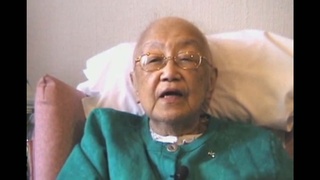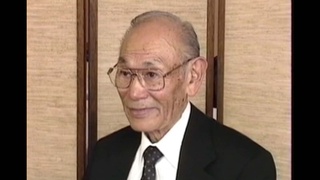Interviews
Makegumi - Movement to regognize the defeat of Japan (Japanese)
(Japanese) To me, this war was one of the most… how should I say this… the most monumental event during my lifetime. At the end of the war on August 15th, after the imperial re-script was announced, there was a big problem that occurred in the Nikkei colonies [in Brazil]. There was this captain... or was he an officer? Anyway this Tenente (Lieutenant) Nakamura rushed into my office, saying something terrible is going to happen—a group of colonists had gathered, believing that Japan had won the war, and there was a rumor that they were going to wave flags of the rising sun around town in a victory march. He comes to tell me what a huge problem this could become, and that we have got to put a stop to this somehow. So we rushed over to Miyagi-san—the port chief’s house, and we all agreed that something must be done about it. This is why I started something called the Movement to Recognize Japan’s Defeat in WWII.
But of course, I knew that Colonel Wakiyama would be a problem. He would be the one that would be carried around in praise by these victory marchers. I knew I had the responsibility to ask the Colonel to endorse my movement to recognize defeat, so I went to his place to talk to him about it. Colonel Wakiyama was in tears, but he accepted, and endorsed the plan with his name.
But soon after, he was assassinated… shot and killed. It was probably because I was… well, due to my youth—because I was young, and wasn’t thinking ahead or beyond what I saw was a major issue at the time. In the end, this movement that I started in order to prevent a problem caused an even greater debate over loyalty, and several people were killed. I was actually No.1 on the targeted list, but thanks to the help and support of my fellow struggling students that I lived with, I was able to evade serious danger.
Date:
Location: Brazil
Contributed by:









